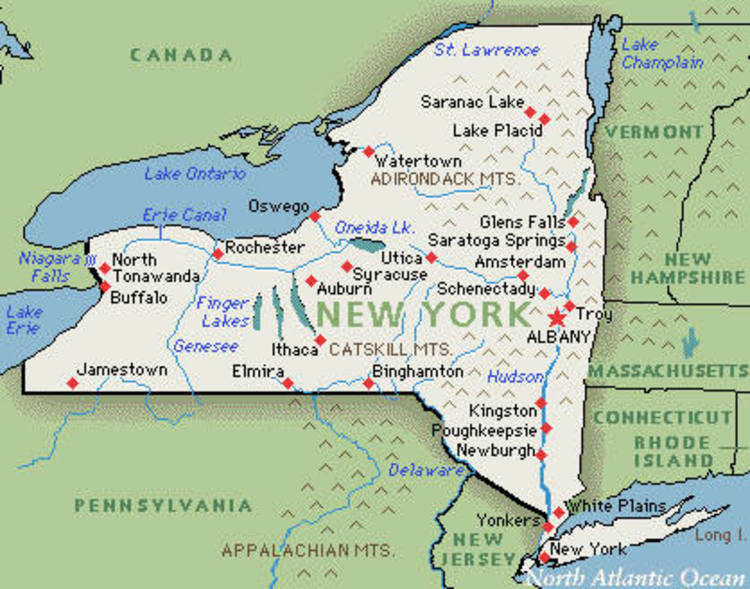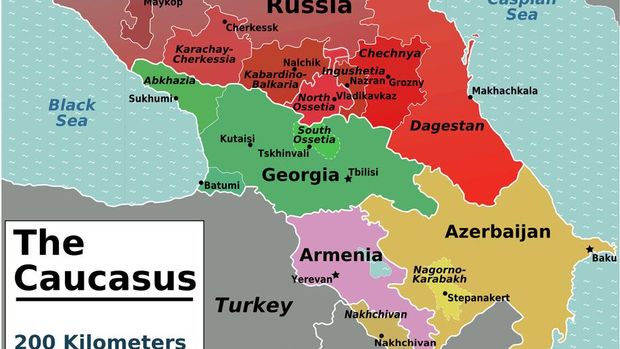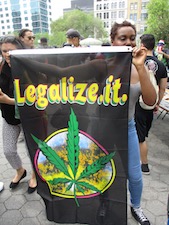 With Canada on a final one-month countdown to legal cannabis, the country's provinces are adopting widely varying regulation regimes, creating a "crazy quilt" policy patchwork. While Ontario and Quebec are opting for provincial government monopolies on retail sales, Alberta and Saskatchewan have embraced a private model, sparking a flood of canna-capital into these western provinces.
With Canada on a final one-month countdown to legal cannabis, the country's provinces are adopting widely varying regulation regimes, creating a "crazy quilt" policy patchwork. While Ontario and Quebec are opting for provincial government monopolies on retail sales, Alberta and Saskatchewan have embraced a private model, sparking a flood of canna-capital into these western provinces.

 In Humboldt County, famed as the heartland of Northern California's cannabis-producing Emerald Triangle, big police raids of cultivation sites—with thousands of plants eradicated—are continuing despite the Golden State's new legalization program. Many growers are choosing to remain underground, in spite of the risks to their property and freedom. And a big part of the reason why seems to lie in a confusing and contested county regulation regime.
In Humboldt County, famed as the heartland of Northern California's cannabis-producing Emerald Triangle, big police raids of cultivation sites—with thousands of plants eradicated—are continuing despite the Golden State's new legalization program. Many growers are choosing to remain underground, in spite of the risks to their property and freedom. And a big part of the reason why seems to lie in a confusing and contested county regulation regime. Things are moving fast in the Empire State, with cannabis legalization proposals striding toward mainstream acceptance—spurred by a growing sense of injustice over the racial disparities in enforcement. In what could be a watershed moment, the state Democratic Party just adopted a resolution to embrace legalization. The party elite seem to be feeling the pressure from below in a gubernatorial election year.
Things are moving fast in the Empire State, with cannabis legalization proposals striding toward mainstream acceptance—spurred by a growing sense of injustice over the racial disparities in enforcement. In what could be a watershed moment, the state Democratic Party just adopted a resolution to embrace legalization. The party elite seem to be feeling the pressure from below in a gubernatorial election year. A protest in the Caucasus republic of Georgia to demand legalization of personal drugs use, with an emphasis on cannabis, points to changing times in the former USSR. The youth group behind the protest was first formed to demand freedom for a popular artist who was sentenced to 14 years for possession of a small amount of herb. The country's top court actually struck down penalties for cannabis possession as a result of the case. But the activists are pressing their campaign—a sign of cultural thaw in a region with very harsh drug laws.
A protest in the Caucasus republic of Georgia to demand legalization of personal drugs use, with an emphasis on cannabis, points to changing times in the former USSR. The youth group behind the protest was first formed to demand freedom for a popular artist who was sentenced to 14 years for possession of a small amount of herb. The country's top court actually struck down penalties for cannabis possession as a result of the case. But the activists are pressing their campaign—a sign of cultural thaw in a region with very harsh drug laws. A deadly five-car pile-up on a Bay Area freeway brings into sharp focus the questions around cannabis use and road safety. Media exploitation of such carnage as propaganda against legalization, however, is missing some critical points.
A deadly five-car pile-up on a Bay Area freeway brings into sharp focus the questions around cannabis use and road safety. Media exploitation of such carnage as propaganda against legalization, however, is missing some critical points. Suddenly, New York state's political establishment is looking seriously at cannabis legalization, driven by growing concerns over long-entrenched racial discrimination in enforcement of the marijuana laws. But there is a growing realization that legalization alone will not be enough to correct this legacy unless it is implemented in way explicitly designed to do so.
Suddenly, New York state's political establishment is looking seriously at cannabis legalization, driven by growing concerns over long-entrenched racial discrimination in enforcement of the marijuana laws. But there is a growing realization that legalization alone will not be enough to correct this legacy unless it is implemented in way explicitly designed to do so. In a still-murky scenario of rare federal enforcement against municipal corruption, FBI agents last week raided the home of the mayor of Adelanto in Southern California's San Bernardino county. In the same operation, a local cannabis dispensary was also searched. Economically troubled Adelanto has aggressively sought investment in its cannabis industry, but paranoia in the wake of the federal raids could have a chilling effect.
In a still-murky scenario of rare federal enforcement against municipal corruption, FBI agents last week raided the home of the mayor of Adelanto in Southern California's San Bernardino county. In the same operation, a local cannabis dispensary was also searched. Economically troubled Adelanto has aggressively sought investment in its cannabis industry, but paranoia in the wake of the federal raids could have a chilling effect.





Recent comments
2 weeks 1 day ago
2 weeks 1 day ago
5 weeks 2 days ago
6 weeks 1 day ago
10 weeks 1 day ago
14 weeks 9 hours ago
18 weeks 14 hours ago
18 weeks 5 days ago
28 weeks 5 days ago
32 weeks 6 days ago